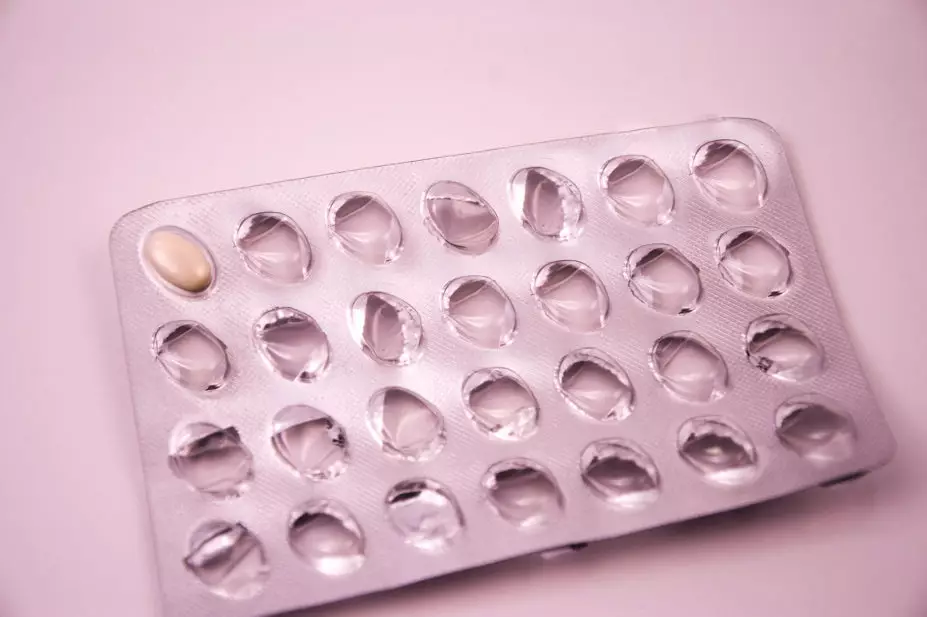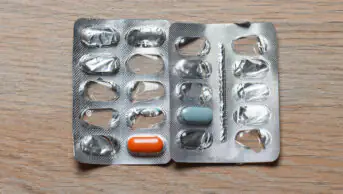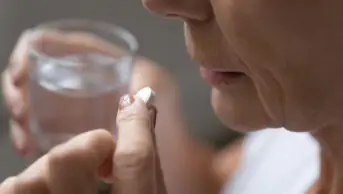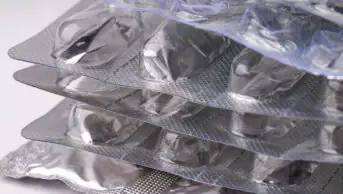
Shutterstock.com
The shortage of hormone replacement therapy (HRT) may have hit the headlines recently, but problems with supply have existed for years.
We look at what has led to these shortages and whether recent government measures to fix them are going to work.
Why are there shortages of HRT?
In 2015, guidance from the National Institute for Health and Care Excellence (NICE) encouraged more GPs to prescribe HRT as first line treatment for patients aged under 60 years who experience menopausal symptoms, such as joint pain, low mood or sexual difficulties.
The guidance said that GPs “overestimate the risks” of HRT and “underestimate the impact of menopausal symptoms” on quality of life, and that two studies — the Women’s Health Initiative (2002) and the Million Women Study (2003) — had resulted in a halving of the number of HRT prescriptions because they identified some long-term health risks, including breast cancer, stroke and blood clots.
Lindsay Lester, pharmacist and menopause specialist at Newson Health, a private menopause and wellbeing centre in Stratford-upon-Avon, Warwickshire, said that, as a result, women were finally able to talk about the effect of the menopause: “The conversation has started again, which actually happened because of the NICE guidance in 2015. That made allowances and said, well, actually, it’s OK to prescribe HRT and it is very safe.”
However, this guidance, combined with greater awareness among the public, has led to a rapid increase in demand for HRT. According to an analysis of NHS data by The Pharmaceutical Journal, prescriptions for HRT medication have more than doubled in England over the past five years. The latest monthly figures from OpenPrescribing show that nearly 538,000 prescriptions for HRT treatment were issued in December 2021, compared with 238,000 in January 2017. Spending on HRT medication across all GP practices in England increased from £3.2m to £7.0m over the same period.
Increased demand has also been stoked by the government, after it announced that it will introduce an annual prepayment scheme in April 2023, which will enable women to pay one prescription charge of £18.70 for a 12-month supply of HRT products. An exclusive story published by The Pharmaceutical Journal revealed that shortages of HRT medicines are being “exacerbated” by some patients already being given prescriptions for a 12-month supply before the prepayment scheme comes into effect.
What product shortages are there at the moment?
The rocketing rise in prescriptions has also come amid a restriction in supply. Shortages were first reported at the end of 2018 for some combined HRT pills and the FemSeven oestrogen patch (Theramex). And, in 2019 and 2020, there were supply problems with the widely used Evorel oestrogen-only and combined patches (Theramex). As a result, patients were switched to other brands, which then had a large knock-on effect on supplies of those products, with healthcare professionals struggling to keep up.
During this time, pharmacists said they were spending huge amounts of time tracking down products. However, towards the end of 2019, manufacturers of HRT products that were experiencing shortages said they had increased manufacturing and that the products would become available again more quickly than expected. Supply issues then seemed to settle in summer 2020.
There are currently shortages of HRT products, including Oestrogel (Besins Healthcare), Ovestin cream (Aspen), and Premique Low Dose (Pfizer), as well as reported shortages of fertility treatment Clomifene, Glycerol suppositories, and antihistamines Piriton and Piriteze.
What has the government proposed to tackle shortages?
The official line from the Department for Health and Social Care on any medicines shortage is always that it is working closely with suppliers to maintain supplies. But there have been several further announcements around HRT in recent months.
A total of 13 serious shortage protocols (SSPs) have now been put in place for HRT products.
Initially, the government issued SSPs for Oestrogel (Besins Healthcare), Ovestin cream (Aspen) and Premique Low Dose (Pfizer) in April 2022, which allowed pharmacists to limit supply of the treatments to three months without consulting the prescriber. The aim of the SSPs is to smooth out supply, which may have been exacerbated by an increase in longer prescriptions for the products, as revealed by The Pharmaceutical Journal.
On 19 May 2022, the government issued a further ten SSPs that allowed pharmacists to dispense a substitute product, or limit supply, for two further products: Sandrena 0.5mg and 1mg gel sachets (Orion Pharma) and Lenzetto 1.53mg/dose transdermal spray (Gedeon Richter), and the ability to substitute products was extended to Ovestin and Oestrogel.
The Medicines and Healthcare products Regulatory Agency has also consulted on making local oestrogen therapy Gina (estradiol; Novo Nordisk) available over the counter. The consultation ended in February 2022.
And, in April 2022, health secretary Sajid Javid appointed Madelaine McTernan, the former director general of the COVID-19 vaccine taskforce, as HRT ‘tsar’ to help tackle shortages. McTernan has been briefed to apply lessons from what is widely seen as the successful procurement of vaccines during the pandemic to the HRT products supply chain, and is already looking at importing HRT supplies from abroad, according to media reports.
Javid also hosted a meeting with drug manufacturers and pharmacy representatives early in May 2022 to look at how the shortages could be addressed.
Reena Barai, community pharmacist in south London and board member of the National Pharmacy Association, attended the meeting and said, while it had been a long time coming, the issue seemed to be finally being taken seriously.
She reiterated that community pharmacy were the ones left having to explain shortages to patients, often with little information themselves.
“I raised three things which would be helpful: more flexibility to switch products, which would be a game-changer; the ability to swap and share
Will this mean an end to the shortages?
Representatives of the pharmaceutical industry have said that meeting an increase in demand of this magnitude takes time , and that manufacturers have simply not been able to keep pace with the number of prescriptions.
Pharmacy minister Maria Caulfield, who also holds the women’s health brief, told Sky News that she expected supplies of Oestrogel, one of the products with the most acute shortages, to be back to normal “roughly around June [2022]”.
In a statement issued on 10 May 2022, Besins Healthcare, the manufacturer of Oestrogel, blamed an “extraordinary” increase in demand for patients’ inability to access its product.
The statement said the company had doubled the volume of supply it had delivered to wholesalers in the first three months of 2022 compared with the same period in the previous year. “With demand continuing to increase, we are doing everything we can to manage, increase and expedite supplies to wholesalers and pharmacies across the country,” it added.
The company promised to further increase its manufacturing capacity, but would not be drawn on whether this would be enough to meet demand.
Tina Backhouse, general manager at Theramex UK, which manufactures a range of HRT products, including Evorel and FemSeven patches, said the company was currently keeping up with an increase in demand for its products, but only because it had increased manufacturing capacity by more than 100% in the past year.
“We’re building capacity every month and have been for the past 18 months. There is genuine growth in demand,” she said.
She said it been difficult for companies to see accurate data on the UK market for several reasons, including a high proportion of parallel imports, adding: “It has taken a while for companies to catch up with what’s going on.”
“Nobody wants to be out of stock but it does take a lot of investment,” she said.
What is causing medicines supply issues?
A range of complicated and interconnected issues in the medicines supply chain have been blamed for shortages in recent years. Back in 2019, there were concerns that new customs and regulatory barriers introduced as a result of Brexit were at least a contributing factor to the problem, after the government banned HRT from parallel exporting — a process where companies buy medicines meant for UK patients and sell them on at a higher price in another country.
HRT products are not the only drugs experiencing shortages currently, however. In a survey published by the Pharmaceutical Services Negotiating Committee in April 2022, 67% of pharmacies said they were having to deal with daily medicine supply issues. And, in January 2022, price concessions for more than 100 generic drugs were granted by the Department for Health and Social Care, compared with 40 price concessions in January 2021.
In February 2022, the Pharmaceutical Services Negotiating Committee attributed the supply issues to COVID-19-related staff absences, changes in trading post-Brexit and increases in oil prices. Mark Samuels, chief executive officer of the British Generic Manufacturers Association, said generics manufacturers have also been struggling with rising costs. “In the past year, raw material costs have tripled, shipping rates are six times more expensive than they were a year ago and that matters where there are shortages,” he said.
“And then on top of that, energy costs have risen by more than 230% in medicines manufacturing,” he continued, adding that this coincided with an increase in the levy paid by manufacturers through the voluntary scheme for branded generics, which increased from 5% in 2021 to 15% in 2022. “That’s a really unprecedented cumulative series of cost pressures on the industry.”
This last comment refers to the rise in payments under the Voluntary Scheme for Branded Medicines Pricing and Access (VPAS) in 2022.
However, when asked by The Pharmaceutical Journal about this, a Department of Health and Social Care spokesperson said that they had not seen any evidence that the rise in payments in 2022 was contributing to medicine shortages.
She added: “In most cases, suppliers are free to de-brand products and market them as generic medicines to avoid VPAS payments. Alternatively, where products would otherwise be unprofitable, they can apply to the department for an increase in the maximum price paid.”


